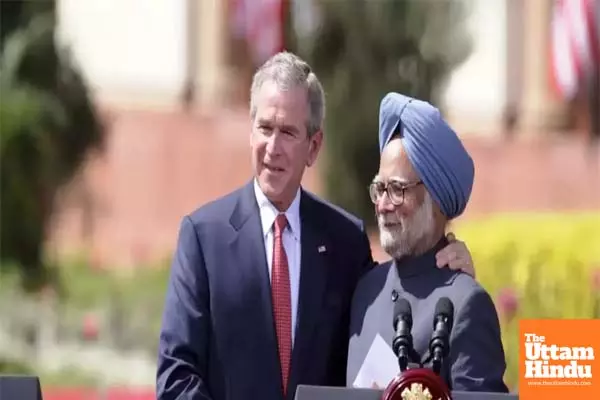
DoE Clears US Firm to Build Reactors in India, Reviving 20-Year-Old Nuclear Deal

NEW DELHI (The Uttam Hindu): In a significant step forward for the long-stalled Indo-US nuclear deal, the United States Department of Energy (DoE) has granted regulatory approval to Holtec International to share small modular reactor (SMR) technology with India. This decision marks a pivotal moment in civil nuclear cooperation between the two nations, nearly 18 years after the landmark agreement was signed in 2007.
The approval, issued on March 26, allows Holtec to transfer unclassified SMR technology under the US's strict 10CFR810 regulation. The technology can be shared with three Indian companies — Holtec Asia (its regional arm), Larsen & Toubro Ltd, and Tata Consulting Engineers Ltd. The authorization is valid for ten years and will undergo a review every five years.
However, the US has imposed a key restriction: the jointly-developed reactors cannot be transferred to other Indian entities or foreign countries without prior US government consent.
Holtec had also sought clearance to engage with Indian government-owned firms including the Nuclear Power Corporation of India Ltd (NPCIL), NTPC, and the Atomic Energy Regulatory Board (AERB), but the Indian government withheld clearances pending US regulatory approval — which has now been granted.
The India-US Civil Nuclear Agreement, commonly known as the 123 Agreement, was signed by then-Prime Minister Manmohan Singh and then-US President George W. Bush to promote peaceful nuclear cooperation. Until now, US firms could export reactors and components to India, but were barred from designing or manufacturing nuclear equipment within the country.
The recent development follows high-level discussions in February between Prime Minister Narendra Modi and President Donald Trump, where both leaders reaffirmed their commitment to the 123 Agreement and emphasized energy security as a cornerstone of economic and technological progress.
To support this growing partnership, the Indian government is also exploring amendments to the Atomic Energy Act of 1962, which currently prohibits private sector investment in nuclear energy.
India currently operates 22 nuclear reactors with a total installed capacity of 6,780 MWe. The majority are Pressurised Heavy Water Reactors (PHWRs), with four being Light Water Reactors (LWRs). The most recent, Kakrapar Unit 4, began operations in early 2024.
The Holtec deal could pave the way for a new era of collaborative nuclear development, with advanced modular technologies playing a crucial role in India's energy future.

